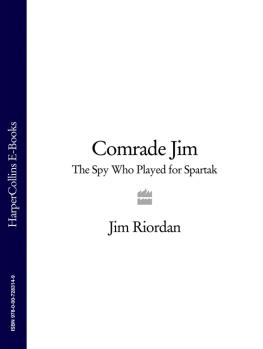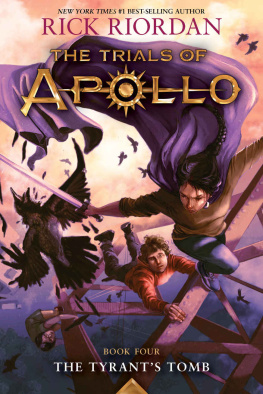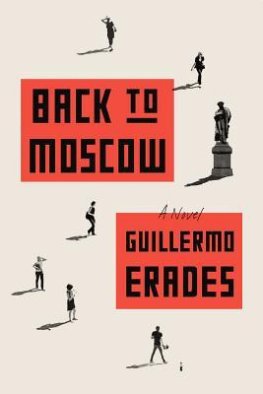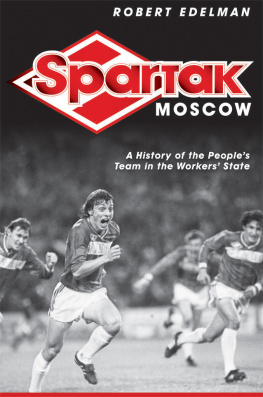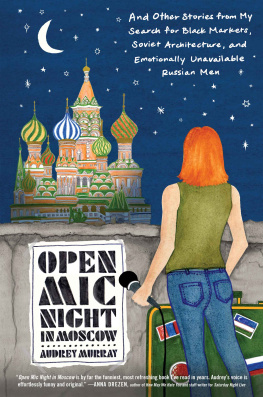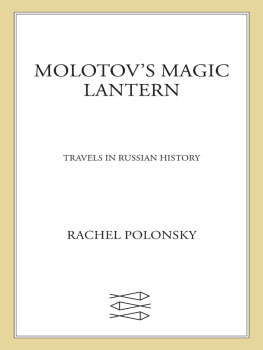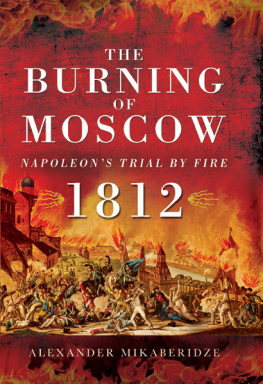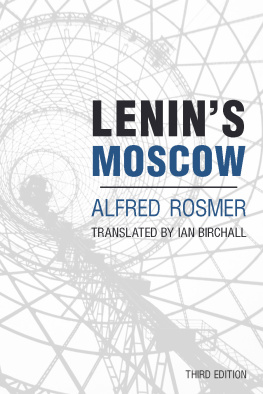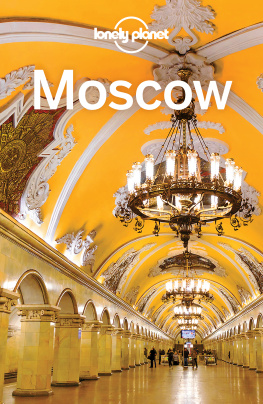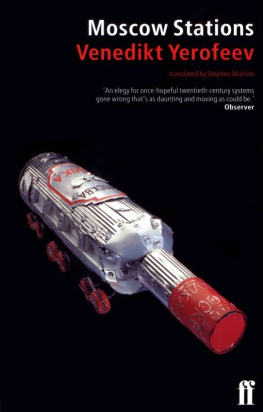It never occurred to me that my loan spell with Moscow Spartak warranted more than a line home. Thats nice for you, Bill, Mumd say, no doubt taking Spartak to be a branch of Spar grocery stores. Shed warned me about going to Russia: Youll end up down those salt mines! The thought of her son playing in the Lenin Stadium before some 50,000 people was as fanciful as him having tea with the Queen.
Then there was the class warrior business. Playing for a commie team was something to keep under my hat. As an envoy of the British Communist Party at the Moscow Higher Party School and you couldnt get higher than that in the communist education hierarchy I had to draw a veil over my doings in the Soviet capital. But an even stronger fetter bound my tongue. Only six years earlier Id learned Russian during National Service to spy on the Russians in Berlin, and Id signed the Official Secrets Act to keep quiet about it. Now I was a two-timer, a double agent, albeit much inferior to real spies, like my Moscow comrades Guy Burgess and Donald Maclean.
Although I didnt know it at the time, under Stalin the Soviet secret police had shot people for less. Yes, I accept: Ishould have known. There are many things, looking back, that I curse myself for not knowing. Ignorance is no excuse. Uncle Joe had died in 1953, a mere seven years before my arrival in Moscow. With his ghost still haunting every home, and his body beside Lenins in the Red Square Mausoleum, it was not for me to cast a shadow over Moscow Spartak FC for risking their No. 5 shirt on an English back. In those days, you never knew whether the Stalinists would make a comeback, despite Khrushchovs condemnation of his predecessors crimes.
You could see why the Spartak coach, Nikita Simonyan, had no wish to trumpet my debut as the first (and last) Englishman to play for a premier Moscow team in the Lenin Stadium. As far as I knew, no player in Soviet league football had been born outside the USSR. I was the sole exception. What is more, though a comrade, I was not regarded as being entirely trustworthy, being from a kapstran, a capitalist country. I was never permitted, for instance, to attend Party meetings at the Higher Party School or, later, at Progress Publishers where I worked for three years.
Incredibly (though was, or is, anything incredible in Russia?), twenty years earlier, the erstwhile Soviet and Spartak football captain (and now general manager), Nikolai Starostin, along with his three brothers, had been sentenced to ten years hard labour in a Siberian gulag for their foreign links or, as the official charge read, for trying to instil into our sport the mores of the capitalist world. It did not matter that he was captaining a Soviet team sent to play against the French communist lEtoile Rouge. These minor details tended to be overlooked.
World War II had enhanced suspicion of foreigners to the point of xenophobia, which resulted in government-sponsored campaigns to tarnish Soviet-based foreigners as the unwelcome bearers of rootless cosmopolitanism. The net drew in most of the British communists I worked with later as a translator, and especially many Jews. Collaboration, even friendship, with foreigners was not to be encouraged. The Spartak staff were taking a huge risk in allowing the guest appearance of someone who wasnt nash ours. No wonder they kept it all hush-hush.
Why did they risk it? The early 1960s were risk-taking times: for poetry and prose, films and pop music, diplomatic forays abroad, including Party boss Khrushchovs trip to Hollywood, the first invitations to American jazz bands, like the Benny Goodman Orchestra, and wider sports contests, like the biennial athletics competition with the USA first held in Moscow in 1972. At times of change, bold Russians invariably tried to push boundaries further.
One more reason for caution was the international situation. In the early 1960s, the Cold War was at its coldest. In mid-1960, a summit meeting between Soviet leader Nikita Khrushchov and US President Eisenhower was aborted after the shooting down of an American U-2 spy plane well inside Soviet air space, and the subsequent trial of its pilot Gary Powers. Then came the Cuban Missile Crisis in October 1962 which brought the world closer to the brink of nuclear disaster than most people realized at the time. For several weeks, we Muscovites, no less than Westerners, anxiously tuned in to radio bulletins every half-hour, expecting the worst. If anything were to boil over, we would be first in the firing line. I could hardly hold up a white flag once the balloon went up and shout, Spare me, Im British!
All this further reinforced a morbid fear of foreigners, any foreigners.
In the early sixties, football may have permitted the greatest expression of non-conformity among Soviet people sportsmen and women were, for example, the only citizens granted an exit visa without having to prove their political loyalty but the game was still circumscribed by multiple constraints. There were no reported football scandals and little coverage of matches in the media. Match-day programmes were unavailable in those austere, non-commercial days. An announcer simply ran through the teams, as if he were reading the shipping forecast, but in five seconds flat. On my debut I was introduced to the crowd as Yakov Eeeordahnov, turning James into its original Hebrew Yakov (Jacob), and the Irish Riordan into the Jewish Jordan. It was all the same to me. To my friends I was Yakov or Yasha; to acquaintances I was Yakov Villiamovich (James, son of William).
As an amateur officially all sportspeople were amateurs, to comply with Olympic regulations I received not a kopeck for my performance. I didnt even get to retain the No. 5 jersey; we had to hand in our kit immediately after the game. There were no names on the backs of shirts in those days, whether in Russia or England. Only years later was I awarded a Spartak red shirt with its diagonal white line across the front and the letter S in the middle. I keep it hanging up neatly ironed in my cupboard in case the call ever comes again.
Since some readers might wonder what a young Englishman was doing in Russia at the height of the Cold War, let alone being a member of such a strange sect as the British Communist Party, I begin my story with a brief description of how I became a communist. At the time I joined in 1959, it took some courage, some might say foolhardiness, to commit myself to a political party that generated fear and suspicion among many people in Britain, especially the powers that be. It certainly was not a sensible career move.
Notwithstanding, it has to be remembered that for most of the twentieth century communism was a force to be reckoned with in most parts of the globe. At one time, its reach spread over three continents and to a third of the worlds population. What is more, Soviet communism claimed to be an alternative and superior system to capitalism, and one destined to triumph over it. In my more optimistic days, I had no doubt it was where the future lay.
Today, some forty-five years later, I am able to write about my time in Moscow, hoping it will be a porthole on a small part of history, shedding light on characters who are now mostly dead. For far too long the Soviet Union, as well as communist parties, earned themselves a reputation for extreme mendacity, unwilling and unable to be open and honest, acting like a medieval secret society.
There is another, more important, reason for writing about my contact with football in the Soviet Union. It reveals a role played by football and footballers that is unique in the history of the game. The aphorism, attributed to the old Liverpool manager Bill Shankly, that football is more than a matter of life and death could find no truer expression anywhere else in the world. Soviet football, as I saw it and understood it, also offered an insight into the power of soccer in a relatively closed and often autocratic society where the need for identity and release found a relatively safe locus in the football stadium.

